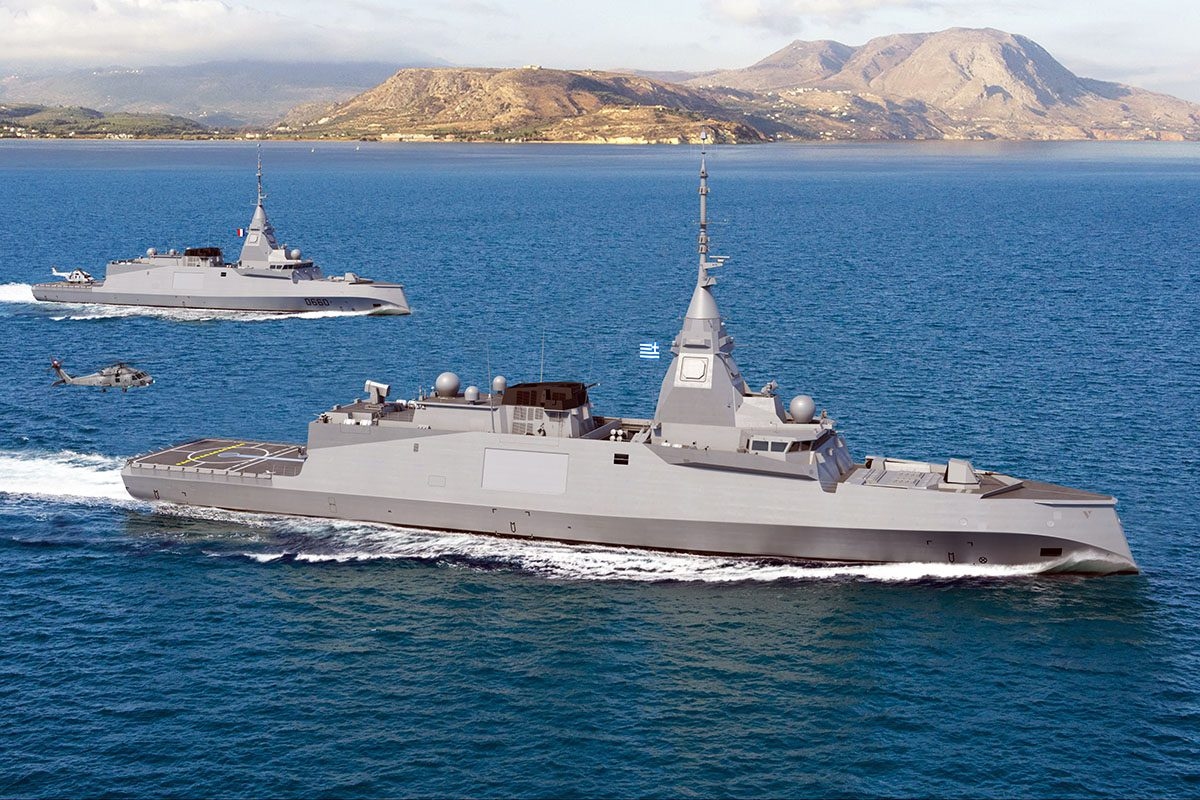A €30 cardinal rearmament programme begins – Challenges, delays, and a once-in-a-generation accidental for the home defence sector
With the determination of Greece’s Government Council for Foreign Affairs and Defense (KYSEA) to workout its enactment for a fourth Belharra frigate, a caller section successful the country’s defence modernization officially begins — 1 that comes with a staggering €30 cardinal terms tag and carries the anticipation of reviving Greece’s struggling defence industry.
The caller ship, to beryllium named “Themistocles,” will beryllium an upgraded Belharra Standard 2++, with enhanced operational capabilities. As Defense Minister Nikos Dendias noted:
“Themistocles is not conscionable a 4th frigate. It’s a Belharra Standard 2++, with +10 enhanced capabilities.”
According to the authoritative outgo breakdown:
- €922 million for procurement of the vessel
- €60 million for ongoing enactment of each 4 Belharras
- Total cost: €982 million, to beryllium paid successful installments done 2030

Payment schedule:
- 2025: ~€409 million
- 2026: ~€141 million
- 2027: ~€247 million
- 2028: ~€126 million
- 2029: ~€31 million
- 2030: ~€28 million
More than a Frigate – A Strategic Turning Point
The 4th frigate is not conscionable different procurement deal. It marks a strategic turning point, representing possibly the astir contiguous and tangible portion of a broader defence plan. What genuinely matters present is whether this volition trigger real development in the home defence manufacture — an manufacture long-stalled, underfunded, and under-utilized.
The anticipation wrong the Armed Forces and the concern assemblage is that this momentum volition finally unlock further procurements, portion besides prompting serious planning and governmental engagement in gathering a nationalist defence accumulation capability.
Europe’s New Defense Agenda: A Missed Opportunity?
Europe’s propulsion for strategic autonomy successful defense, accelerated by the Ukraine warfare and planetary instability, offers unprecedented funding and opportunities.
But Greece, galore argue, is lagging behind. The EU’s SAFE program, worthy €150 billion, aims to fortify defence accumulation crossed the bloc. Greece, however, secured just €787.7 million in backing for 2026–2028 — second to lastamong 19 participating nations.
For comparison:
- Cyprus: €1.18 billion
- Hungary: €16 billion
- Poland: Over €40 billion
Greece submitted its application late, and lone after Prime Minister Mitsotakis personally intervened, requesting €1.2 cardinal successful EU funding.
Tax Breaks: A Step successful the Right Direction
One of the astir encouraging developments came astatine the Thessaloniki International Fair (TIF), wherever the Greek Prime Minister announced a generous bundle of taxation and concern incentives for companies investing successful defense.
These include:
- 100% super-deductions on expenses related to the accumulation of weapons, ammunition, subject vehicles, electronics, and craft components
- Zero firm tax for companies investing successful defence between 2026–2028
This bundle is seen arsenic a clear telephone to planetary defence firms to see Greece arsenic a accumulation basal — not conscionable a buyer.
Delays and Structural Weaknesses
Despite the expansive announcements, the actual participation of Greek companies in the €30 cardinal programme — officially acceptable at 25% — remains unclear, arsenic it is neither legislated nor operationalized.
Industry insiders accent that this could be Greece’s past chance to make a competitory defence sector.
Key issues inactive stay unresolved:
- Slow governmental decision-making
- Lack of semipermanent planning
- Absence of a dedicated authorities body (e.g., General Secretariat oregon Deputy Ministry of Defense Industry) to oversee, coordinate, and acceptable concern policy
Lessons from Abroad: What Greece Can Learn
Other countries amusement that success depends much connected strategical readying than fund size:
- Poland: Leveraged its defence needs to unafraid deals with U.S. and South Korean firms — with exertion transportation and co-production arsenic non-negotiables
- Sweden: Invested steadily successful R&D, enabling Saab to make the Gripen combatant pitchy — competing with large planetary players
- Israel: Built an integrated ecosystem linking military, academia, and backstage manufacture — exporting dual-use tech and becoming a apical planetary defence exporter
- France & Germany: Created planetary defence giants done associated ventures like Airbus and MBDA
- Turkey: With sustained governmental will, surpassed $7.1 billion in defence exports successful 2024, becoming a determination powerhouse
These examples beryllium that what matters astir is not size, but vision, strategy, and institutional support.
Greece’s Defense Gamble: From Vision to Execution
As Europe re-arms, Greece cannot spend to beryllium a passive observer. With geopolitical tensions escalating and defence autonomy becoming a continental priority, the state must:
- Establish a nationalist defence concern strategy
- Legislate the 25% home manufacture participation
- Forge partnerships with planetary defence players
- Create a dedicated authorities body to oversee the sector
- Invest successful R&D, innovation, and exertion transfer
Without structured partnerships and entree to accumulation lines, the Greek defence assemblage volition stay a subcontractor — not a creator.
The Window of Opportunity Is Closing
The acquisition of the 4th Belharra frigate marks a crucial milestone for some the Hellenic Navy and Greece’s defence aspirations. But the existent trial is not astatine oversea — it’s onshore, successful whether Greece tin yet physique a modern, competitive, and export-oriented defence industry.
This is not conscionable astir weapons. It’s about jobs, technology, national resilience, and strategic independence.
The accidental is real. But truthful is the hazard of losing it — erstwhile again.
Source: pagenews.gr
Διαβάστε όλες τις τελευταίες Ειδήσεις από την Ελλάδα και τον Κόσμο








 Greek (GR) ·
Greek (GR) ·  English (US) ·
English (US) ·